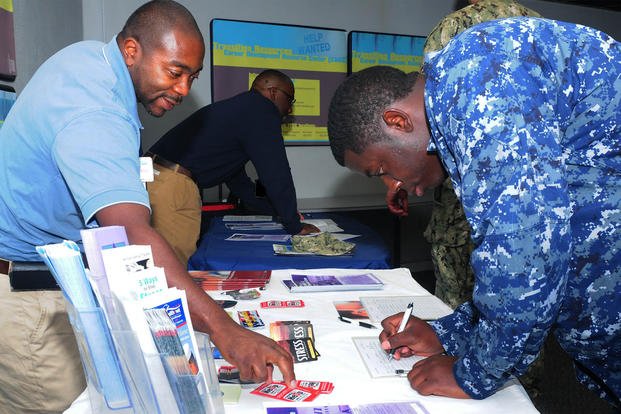Gulf War vet Scott Fuson -- vice president of US Express Inc., the Knoxville, Tennessee-based parent company of USExpress.net, OnlineCoupons.com, GroceryCoupons.com, USPromo.com and XPortals.com -- is in a people-oriented business.
"Part of my job is being a winer and diner," Fuson said. "I help guide the company in the direction to be profitable and help it grow. I do that by building relationships."
Fuson honed his people skills in the U.S. Navy, where he served from 1991-93. He was stationed aboard the aircraft carrier USS Nimitz during Operation Desert Storm, where he began as a fireman apprentice, made petty officer third class in one year and finished his stint as a machinist's mate (MM3).
"I never finished college," he said. "I don't have a business background. All the business we've secured has been by building personal relationships. It works."
Monster talked with Fuson about strategies that helped him make the transition from the Navy to a civilian job.
Monster: How has your naval engineering training transferred into your current work?
Scott Fuson: "You learn inventiveness. In the Navy, you have to improvise, especially when you're at sea for six months. If something breaks, you fix it. You can't go to the parts store. You have to be able to think on your feet to get the job done.
"Attention to detail is big. The safety of others around you depends on your being responsible for the job you do and making sure you get results. The practical lessons of the Navy allowed me to get a good job like this. [My military training] gives me a little more diversity, especially in the areas of being a problem solver and finding unexpected ways to get things done."
M: What about things such as people skills and attitude?
SF: "There's no other place in the world where you end up thrown into a mix of people as diverse as in the military. Out of a group of five people, you'll have a rodeo rider from Texas, a guy from the Bronx, a hillbilly like me, a surfer and God knows what else.
"They have to learn to work together in spite of their differences and how they were brought up and the ideals programmed into them since they were kids. That's the best part of the military experience -- you put all that behind you. You don't judge a book by its cover anymore. You have to get along with everyone and get the job done."
M: What advice do you have for other vets transitioning into the civilian workforce?
SF: "Lighten up on perfection a little. In the military, you have to follow procedure. Because I was a big rule bender, I didn't have a problem when I got out. But I worked with some guys who had trouble when they got out of the Navy.
"In a civilian position, there isn't necessarily a manual to tell you how to do your job. You have to find the path to get from here to there. For some military folks, that's difficult to do. [The entire time they were in the military,] they had a rulebook and some lieutenant yelling at them if they deviated from the norm. That can be tough to shake."
M: What is the key to success?
SF: "Networking. I was blessed with the ability to make friends and build relationships easily and quickly. If people like you and are comfortable with you, they will do business with you. Be sincere. Don't act like a salesman."
Stay on Top of Your Veteran Benefits
Military benefits are always changing. Keep up with everything from pay to health care by signing up for a free Military.com membership, which will send all the latest benefits straight to your inbox while giving you access to up-to-date pay charts and more.











